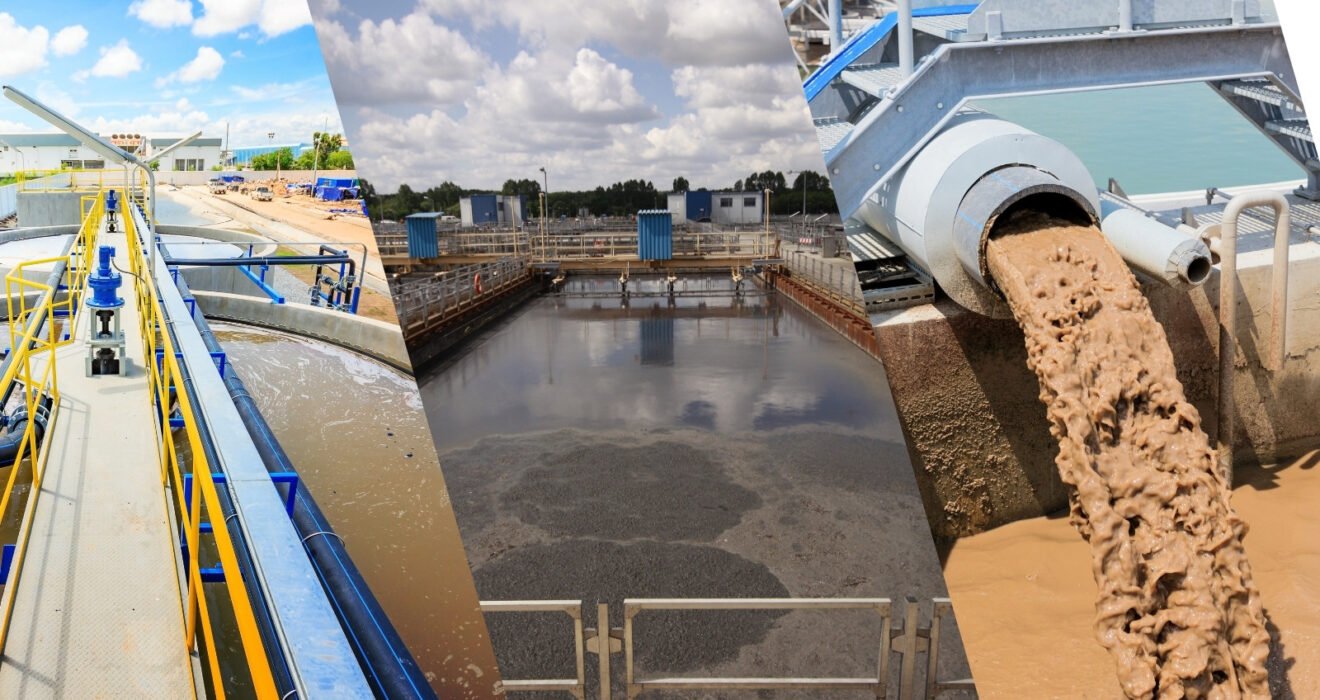The Ultimate Sludge Solution: Why a Screw Press Outperforms All Other Dewatering Systems
Industrial wastewater treatment produces an unwelcome but inevitable byproduct: sludge. For any facility, managing this sludge is a critical operational and financial challenge. The higher the water content in your sludge, the heavier it is, and the more it costs to haul away for disposal. The key to slashing these expenses lies in maximizing water removal.
This was the precise challenge facing a Bangalore-based whipped cream manufacturer we partnered with in 2017. Their existing wastewater operations were creating sludge with high water content, leading to exorbitant disposal fees. By implementing a state-of-the-art dewatering solution from Genex Utility, they *saved a remarkable Rs 207,000 in solid waste disposal costs in just six months.*
While various dewatering technologies exist—from filter presses and belt presses to vacuum systems—one stands out for its superior efficiency, automation, and cost-effectiveness: the *Screw Press*.
The Technological Edge of the Screw Press
Many older systems, like filter presses or vacuum filters, come with significant drawbacks. A filter press is a batch process requiring frequent operator intervention and high-pressure operation, leading to higher energy consumption and maintenance costs. Belt presses are notorious for their high water usage for cleaning, sensitivity to inconsistent sludge, and potential for odour issues.
The Screw Press, however, represents a paradigm shift in dewatering technology. Its design is both simple and profoundly effective. Sludge is fed into a chamber where a central auger, or screw, rotates at a very low speed within a cylindrical screen. The gradually decreasing pitch of the screw flights and the narrowing gap at the discharge end create increasing pressure on the sludge. This gentle but relentless pressure squeezes the water out through the screen, producing an exceptionally dry solid “cake” for disposal and a clear filtrate for recycling back into the plant.
The key merits of the Screw Press system include:
Unmatched Automation: The system operates continuously with minimal need for operator oversight. Its self-cleaning mechanism prevents the screen from clogging, ensuring stable, long-term performance without manual intervention.
Drastically Lower Operating Costs: The slow-rotating screw consumes significantly less energy than high-pressure pumps or the motors of a belt press. Furthermore, it requires a fraction of the wash water used by other systems, delivering substantial savings on both power and water bills.
Superior Solids Capture: The Screw Press is engineered to handle a wide variety of sludge types, including the oily and fibrous sludges that can cripple other systems. It consistently produces a drier cake, directly translating to lower haul-off and disposal expenditures.
Compact and Quiet Operation: With a small footprint and exceptionally low noise and vibration levels, the screw press is easy to integrate into existing facilities without disrupting the work environment.
The Genex Advantage: A Partner in Efficiency
At Genex Utility, we believe in delivering integrated wastewater systems that are both powerful and practical. Our comprehensive approach goes beyond simply supplying equipment. We partner with you to design, install, and service a complete solution tailored to your specific needs. This includes providing the right chemistry and optimizing dosage to ensure the entire process runs at peak efficiency.
Clients like the dairy cream producer have not only seen a dramatic reduction in disposal fees but also in their chemical and overall operational expenses after implementing our advanced screw press solutions.
Industrial facilities no longer have to settle for inefficient and costly sludge dewatering. Technologies like the extractor, belt press, geo-textile bags, and rotary vacuum have their place, but the Screw Press has proven to be the superior technique for maximizing sludge reduction and driving down expenses.
Transform your sludge from a costly liability into a manageable byproduct. To learn more about how our advanced screw press dewatering technology can revolutionize your wastewater management, *contact a Genex Utility professional today.*
There are numerous ways to dewater sludge, each with its own benefits. Two of the more popular methods consist of a vacuum system and a filter press. It’s a general, but an unproven belief, that a vacuum filter supports a more automatic procedure. This is false. A vacuum system targets lower solids, and results in more water in the sludge, leading to an increased haul-off costs. It’s also an expensive system to operate, with pre-coat expenses. The maintenance of vacuum seals and the system’s many moving components add to expenses.
Dewatering by way of filter press directs higher solids and yields less water in the waste for reducing haul-off expenditure. A filter system also has reduced operational expenses and helps automatic stage fill sections. Filter press dewatering brings about great value to facilities and reduces the volume of materials bounded for the landfill, turning it a very eco-friendly option.
The Genex Utility derives a process which reacts to the variable features of the precipitate and rapidly fills the press by combining feed pressure, feed flow rate, and feed volume. The system persistently adapts to feed pressure to balance the foremost feed volume. The press fills unwaveringly and offers optimal dewatering by preventing premature plate surface blinding that causes soft cakes. The method derived by us results in the great filter cake solids possible, produced in the shortest period of time.
We believe in producing unified wastewater systems that are simple and successful. Our comprehensive approach to wastewater treatment includes design, install, service, offering the right chemicals, and uplifting chemistry dosage. Clients, like this milk cream producer, have noticed a reduction in chemical and operational expenses after applying our solutions.
Industrial facilities have many affordable options when it comes to dewatering sludge. An extractor, belt press, geo-textile, and rotary vacuum are all techniques that can be utilized. The goal of each is to separate sludge into liquids and solids, eliminating as much water from the by-product as possible to reduce disposal costs. The genex utility Press Manager demonstrates to be the best technique for reducing expenses by maximizing wastewater sludge reduction and management. To learn more about our dewatering methods, contact a Genex Utility professional today.



